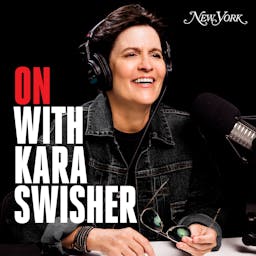Joe Manchin on Trump, the Dems & the Filibuster
For years, Senator Joe Manchin of West Virginia was a Democrat with a habit of voting against the party line. Not surprisingly, that was something many Democrats despised and Republicans relished. His resistance cost Democrats big legislative wins, including President Biden’s $1.75 trillion Build Back Better Act in 2021. After being called a DINO (Democrat in Name Only) for years, Manchin flirted with a presidential run on the No Labels ticket and officially dropped the “D” to become an independent in 2024, shortly before leaving office.
Kara talks to Manchin about his new memoir, Dead Center: In Defense of Common Sense, his reasoning for occasionally siding with the other side of the aisle, his defense of the filibuster, and why he thinks independents might have a better chance in 2028.
Questions? Comments? Email us at on@voxmedia.com or find us on YouTube (full episodes available now!) Instagram, TikTok, and Bluesky @onwithkaraswisher.
Learn more about your ad choices. Visit podcastchoices.com/adchoices
Kara talks to Manchin about his new memoir, Dead Center: In Defense of Common Sense, his reasoning for occasionally siding with the other side of the aisle, his defense of the filibuster, and why he thinks independents might have a better chance in 2028.
Questions? Comments? Email us at on@voxmedia.com or find us on YouTube (full episodes available now!) Instagram, TikTok, and Bluesky @onwithkaraswisher.
Learn more about your ad choices. Visit podcastchoices.com/adchoices
Press play and read along
Transcript
Transcript is processing—check back soon.
On with Kara Swisher — Joe Manchin on Trump, the Dems & the Filibuster
